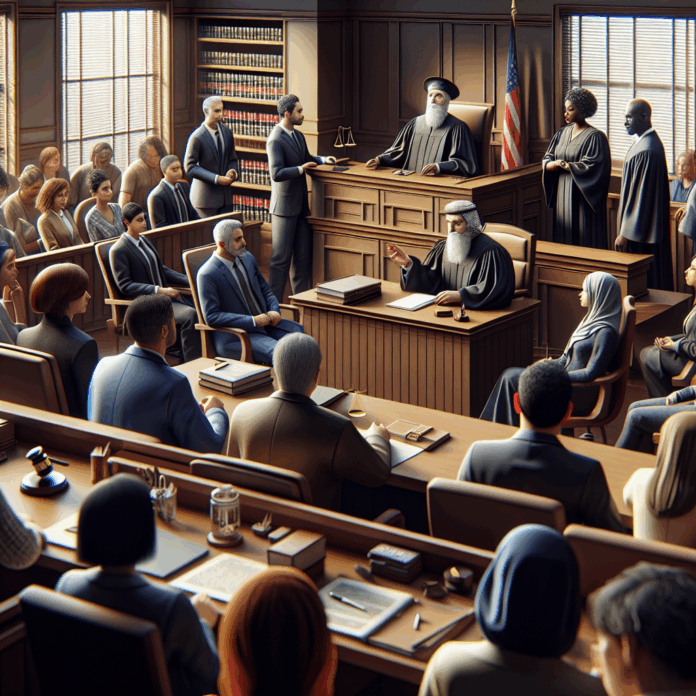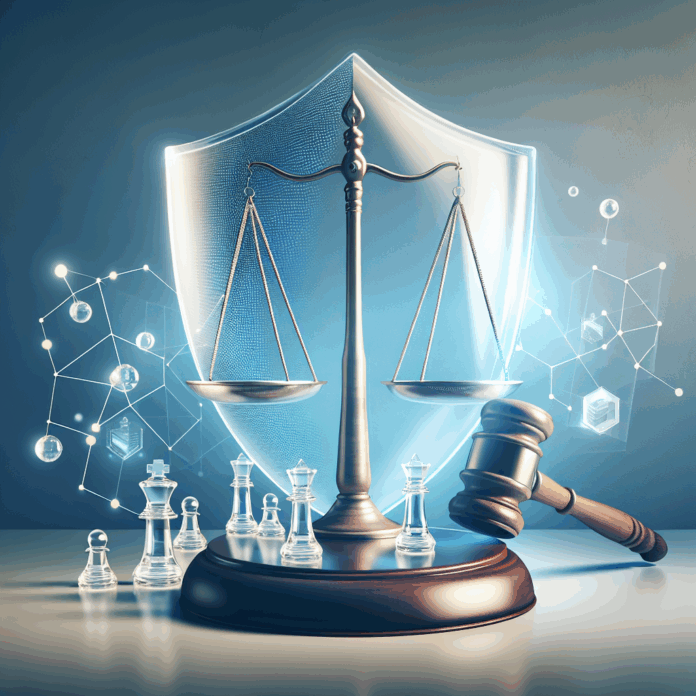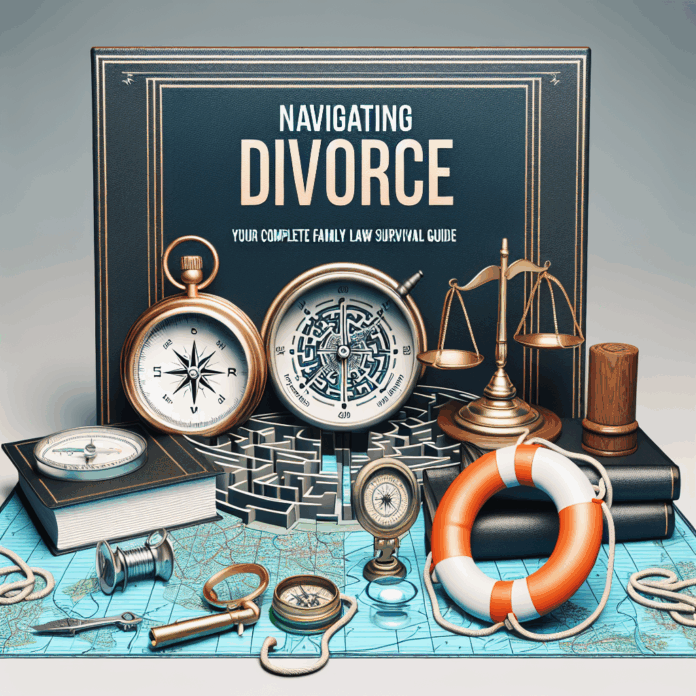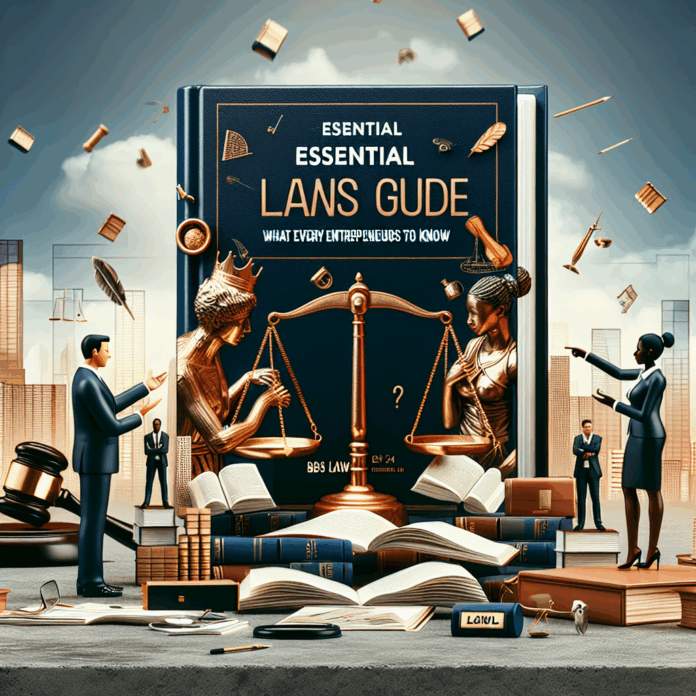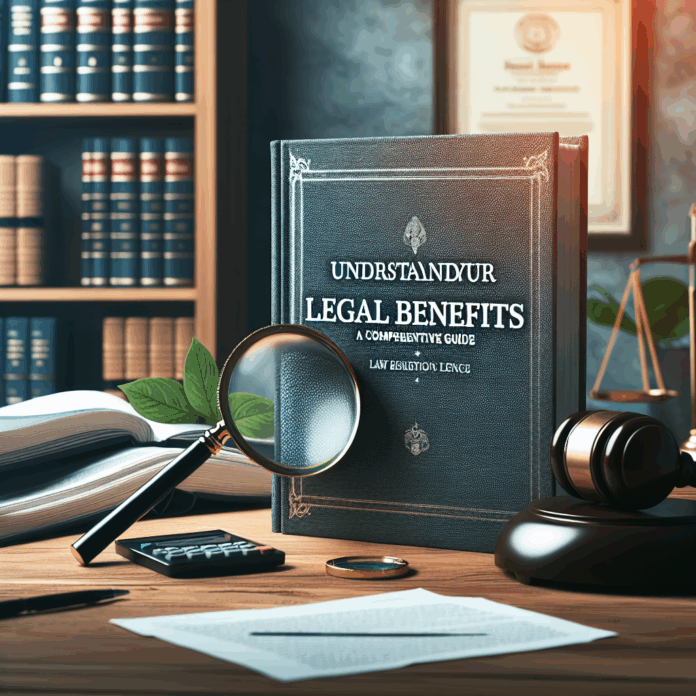Taking Legal Action: When and How to Proceed
Introduction
Embarking on a legal journey, whether it be for business or personal reasons, can feel like navigating a maze of legislation and statutory law. The decision to take legal action is not one to be taken lightly, and understanding when and how to proceed is crucial. Whether you’re considering a lawsuit due to a breach of contract or need to defend yourself against criminal charges, understanding the legal framework is key to ensuring compliance with the law. After all, nobody wants to end up on the wrong side of the more than 2 million people incarcerated in the US, right?
In this article, we’ll unravel when it’s prudent to act legally and explore the essential steps you should take before proceeding. Let’s face it, even seasoned attorneys can get tangled up in the web of statutory regulations, government statutes, and those infamous legal documents that seem like they require a translator.
Why Consider Legal Action?
- To Resolve Disputes: When informal negotiations fail, taking legal action might be necessary to resolve disputes effectively.
- To Protect Your Rights: Whether it’s enforcing your civil rights under a legislative act or seeking damages for personal injury, legal recourse can provide protection.
- To Comply with Legal Mandates: Sometimes acting legally isn’t just an option—it’s a requirement under enacted statutes or regulatory compliance frameworks.
The Steps Before Taking Legal Action
- Consultation: Speak with a lawyer who specializes in your area of concern. This provides clarity on your situation and possible outcomes.
- Review Legal Requirements: Ensure that any action you take complies with state law acts and federal law acts relevant to your case.
- Avoid Common Pitfalls: Familiarize yourself with common mistakes people make after an arrest by reading resources such as our guide on legal mistakes post-arrest.
Taking informed legal actions can safeguard your interests while also keeping you within the bounds of lawful act provisions. So read on as we delve deeper into each aspect of this process. Remember: knowledge is power, but so is having a good attorney by your side!
Understanding the Need for Legal Action
Embarking on the journey of taking legal action can feel as daunting as scaling Mount Everest—only with more paperwork and fewer picturesque vistas. But understanding when and why to act legally is crucial in safeguarding your rights and interests.
When Should You Consider Legal Action?
Deciding to proceed with legal action isn’t always straightforward, but certain scenarios make it non-negotiable:
- Breach of Contract: If a party fails to honor their obligations under a legally binding contract, this may be a clear sign to consider litigation.
- Personal Injury: In cases where you’ve been injured due to someone else’s negligence, like slipping on that suspiciously slippery ‘wet floor’, you might have grounds for a lawsuit.
- Civil Rights Violations: Any infringement upon your legally protected civil rights needs addressing through appropriate legal channels.
The Importance of Timing
The phrase “timing is everything” rings especially true in the realm of legal proceedings. Statutory limitations, or the legislative framework setting deadlines by which you must initiate legal action, can vary significantly. Missing these deadlines might mean forfeiting your right to act. As such, it’s imperative to familiarize yourself with these statutory provisions specific to your situation.
“Justice delayed is justice denied.” — William E. Gladstone
Evaluating Your Legal Options
Your decision should be informed by various factors including potential costs, chances of success, and possible outcomes. It’s akin to choosing whether to binge-watch an entire season in one night—considering its impact on sleep and productivity the next day.
A consultation with a legal expert can illuminate the best path forward within the complex maze of enacted statutes and regulatory frameworks. Equipped with expert insights, you can evaluate if pursuing a judicial act aligns with your goals or if alternative dispute resolution methods like mediation could serve as a more efficient solution.
The Role of Documentation
If you decide that taking legal action is indeed necessary, assembling a robust portfolio of evidence will be crucial. Document everything meticulously—email threads, written agreements, photos; think of it as creating your own personal episode of CSI: Your Life Edition.
This comprehensive collection will bolster your case’s credibility when presented within the confines of legislative enactment in courtrooms.
Taking legal action may seem overwhelming at first glance, but understanding its necessity ensures you’re prepared not just for today’s challenges but also for future ones that might require navigating through complex judicial decrees and government guidelines.
Consulting with Legal Professionals
When it comes to navigating the often perplexing world of legal acts and legislation, consulting with a legal professional can feel like uncovering a treasure map in an otherwise labyrinthine journey. Whether you’re dealing with a legislative act or attempting to grasp the intricacies of statutory compliance, having an expert by your side can offer clarity that even the clearest statutes might lack.
Why Seek Legal Counsel?
- Expertise: Legal professionals are trained to decipher the language of laws and regulations. This expertise can be invaluable when evaluating the implications of a legal mandate.
- Personalized Advice: Unlike generic online advice, legal counsel offers tailored guidance specific to your situation—think of it as having a GPS in the vast terrain of enacted statutes and government regulations.
- Avoiding Pitfalls: Legal missteps can have severe consequences. Consulting with an attorney helps avoid common pitfalls that could lead to costly errors or lengthy judicial decrees.
Selecting the Right Legal Professional
The process of choosing a legal advisor is akin to selecting a trusty sidekick for your journey through legislative enactments and statutory provisions. Here are some tips:
- Specialization Matters: Different lawyers specialize in different areas—much like how you wouldn’t ask your dentist about that pesky squeak in your car engine. Ensure your lawyer has expertise relevant to your needs, whether it’s business law or family law.
- Reputation and Reviews: Just like you’d check reviews before binge-watching that new Netflix series, look for recommendations and testimonials from previous clients. This provides insight into their success rate and client satisfaction.
- Chemistry: You’ll be working closely with this person, so ensure there’s good communication and comfort between you. A lawyer who speaks in jargon more than plain English might not be ideal if you’re looking for clarity.
No matter where you are on your legal journey—whether grappling with compliance standards acts or decoding legislative frameworks—a reliable attorney is essential. They’re not just there for when things go wrong but also when strategically planning how to proceed within the bounds of lawful act provisions.
If you need more insights into avoiding common mistakes during legal proceedings, take a look at our article on common legal missteps after an arrest.
Gathering Evidence and Documentation
So, you’ve decided to act legal and take the plunge into the world of legal proceedings. Before you dive headfirst into this adventure, one of the most crucial steps is gathering evidence and documentation. Think of this as your legal treasure hunt—minus the pirates, of course.
Why Gathering Evidence is Crucial
In any legal act, whether it’s a civil rights act or a legislative act, evidence is your best friend. It’s the solid ground upon which your case stands. Without it, even the best arguments might fall flat like a poorly baked soufflé. The biggest legal mistakes people make after an arrest often include overlooking vital evidence that could make or break their case.
Types of Evidence to Collect
- Documents: These are your golden tickets in any enacted law. Contracts, emails, receipts—anything that can be printed on paper (or exists digitally) can be vital.
- Photographs/Videos: A picture is worth a thousand words. Visual evidence often paints a clearer picture than any courtroom sketch artist ever could.
- Witness Statements: People who witnessed events can offer invaluable insights. Remember, in statutory law, credible witnesses can sometimes sway decisions more than tangible evidence.
- Official Records: Police reports, medical records, and financial statements fall under this category. They are pivotal when complying with statutory regulations or government guidelines.
The Digital Age: Emails and Social Media
The digital footprint you leave online can either be a boon or a bane in the realm of legal statute compliance. Forward those crucial emails to yourself for safekeeping and download relevant social media interactions that might support your claims.
“The devil is in the details,” they say—and honestly, who are ‘they’? Probably someone who lost an important case due to missing documents!
Tips for Effective Documentation
- Create a System: Organize all gathered documents in chronological order or by relevance to each incident.
- Diversify Your Sources: The more varied your sources—think witnesses from different perspectives—the stronger your compliance with statutory provisions becomes.
- Safeguard Originals: Always keep original copies safe. Consider digital backups for added security under legislative frameworks like GDPR.
If this sounds overwhelming, know that you’re not alone. Many find themselves baffled at first by statutes and ordinances but rest assured; with due diligence and meticulous documentation, you’re on the right path towards achieving statutory compliance and effective litigation outcomes.
Filing a Legal Complaint
So, you’ve decided it’s time to act legal and file a complaint. Whether it’s a neighbor’s overzealous lawn gnome that keeps wandering onto your property or something a bit more serious, the process can be as daunting as deciphering your dog’s bark patterns. But fear not—here’s your guide to navigating this maze of legal statues and legislation without losing your sanity.
Understanding the Basics
- What is a Legal Complaint? – It’s essentially a formal document that starts your case in court. Think of it as the opening salvo in your battle for justice, outlining the facts and legal reasons why you’re seeking relief.
- The Necessary Components: – A well-crafted complaint typically includes the following elements:
- A clear statement of jurisdiction
- The parties involved (yes, even that pesky lawn gnome if applicable)
- A detailed account of facts
- Your claims (this is where you spell out statutory compliance issues)
- The relief or remedy you seek
Navigating the Legal Framework
If you’re filing under specific statutes like the Consumer Review Fairness Act of 2016, understanding these laws is crucial (learn more here). States have varying rules and regulations regarding how complaints should be filed—so ensuring compliance with state law acts is essential.
The Importance of Timing
You also need to consider timing. The statute of limitations is like that annoying ticking clock in an escape room—you can’t ignore it! Depending on the nature of your case, different deadlines apply. Miss one, and you could lose your right to seek legal redress.
“Justice delayed is justice denied.” – William E. Gladstone (and probably also true for late-night pizza orders)
Filing Procedures: Step-by-Step Guide
- Research: Understand which court has jurisdiction over your case.
- Drafting Your Complaint: Use clear language to detail why you’re taking action and what laws support you.
- Filing Fees: Be prepared to pay filing fees unless you’re eligible for a waiver.
- Submit Your Complaint: File it with the appropriate court clerk’s office either electronically or in person, depending on local regulations.
- Avoid Mistakes: Ensure all forms are completed correctly to prevent delays (common pitfalls here)!
The world of enacted law can be bewildering at first glance, but understanding these foundational steps will help streamline the process. Filing a complaint doesn’t have to feel like you’re reenacting Phoenix Wright: Ace Attorney. With clarity, compliance standards, and maybe just a sprinkle of patience, you’ll be on solid ground in no time!
Exploring Alternative Dispute Resolution (ADR) Methods
When you find yourself in the thick of a legal dispute, the idea of going to court might feel as daunting as trying to assemble furniture with instructions in a foreign language. Thankfully, not all paths to justice require the gavel-and-gown scenario. Enter Alternative Dispute Resolution (ADR)—a suite of methods designed to resolve conflicts outside the courtroom. With ADR, you can often reach a resolution that’s not only faster and more cost-effective but also less likely to make your hair turn grey overnight.
The Main Types of ADR
- Mediation: In mediation, a neutral third party helps both sides communicate and negotiate. Think of the mediator as a skilled referee in a heated game of chess. The aim is to facilitate a mutually agreeable settlement without dictating an outcome.
- Arbitration: This process involves an arbitrator who listens to both sides before making a binding decision. If mediation is a friendly chess game, arbitration is more like having Judge Judy decide who gets the last piece of cake.
- Negotiation: This informal method allows parties to settle disputes on their own terms, akin to two kids negotiating who gets which half of the cookie.
An eye-opening fact: According to the American Bar Association, around 80-90% of all civil cases are resolved through some form of ADR before reaching trial. That’s right; most disputes avoid seeing the inside of a courtroom entirely! This statistic underscores ADR’s effectiveness and why it’s worth considering before breaking out your courtroom attire.
The Benefits of ADR
- Cost Efficiency: Let’s face it—litigation can be expensive. By opting for ADR, you can potentially save thousands in legal fees.
- Time Saving: Court cases can drag on longer than your favorite TV series. With ADR, resolutions often come quicker and without unnecessary drama.
- Confidentiality: Unlike court cases which are public record, ADR proceedings are typically private, keeping sensitive matters under wraps.
If you’re pondering whether ADR might be right for your situation, consider this: It aligns with various legislative frameworks and government guidelines aimed at fostering amicable resolutions over protracted legal battles. Not only do these methods comply with statutory provisions laid down by federal and state law acts, but they also offer tailored solutions that respect everyone’s needs.
If you’re interested in understanding how legislation influences business dispute resolutions specifically, check out our comprehensive article on the differences in business and corporate law.
Navigating legal waters doesn’t have to feel like you’re adrift at sea without a paddle. By embracing ADR methods where applicable, you set yourself on a course toward smoother sailing with fewer stormy courtroom encounters!
Conclusion
Taking legal action can often feel like navigating a labyrinth with no map, but understanding when and how to proceed is essential to ensuring your rights are protected. Whether you’re dealing with a specific legal statute or the broader framework of enacted laws, knowing your options is half the battle.
Remember, the decision to act legally should be grounded on informed choices:
- Consult with legal experts to get clarity on your situation. Think of it as having a personal guide who speaks ‘legal’, fluently.
- Familiarize yourself with relevant legislative acts, such as the Civil Rights Act or specific government regulations, which could impact your case.
- Ensure you are in compliance with statutory requirements to avoid unnecessary complications.
If you’re feeling overwhelmed, it’s okay—you’re not alone. Many people find themselves bewildered by the complexities of the law. For instance, did you know that there’s an entire set of statutes and guidelines concerning asset forfeiture? As highlighted in our article on Wisconsin’s asset forfeiture statutes, legislation can sometimes tilt the balance of power in unexpected ways. It’s crucial to stay informed and proactive.
In a world where ignorance is definitely not bliss, arm yourself with knowledge and clarity. By doing so, you not only empower yourself but also ensure that your actions are aligned with both federal and state law mandates. And remember, seeking legal recourse isn’t about picking a fight; it’s about defending your rights in a system that offers structured pathways for justice.
So grab a cup of coffee, sit back, and continue exploring our resources here at HBSLawFirm.com. After all, understanding legislation may just make those Latin phrases sound more comforting than confusing!



